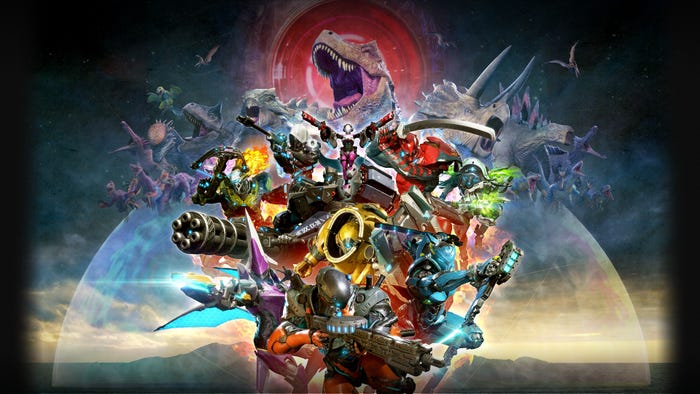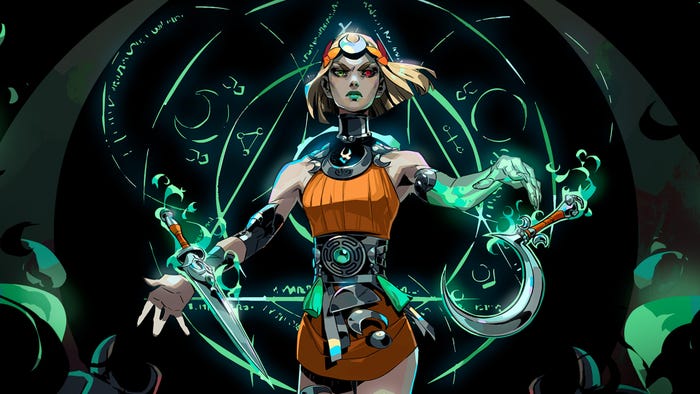
Featured Blog | This community-written post highlights the best of what the game industry has to offer. Read more like it on the Game Developer Blogs.
Born to immerse - stories in games and folklore
How we are culturally obliged to live through stories and to derive meaning from them, even though we are not actively participating or being able to change its course.

One of my favourite things to do is watching other people play games. Not watching the people obviously, but watching the game being played. I have done this from a young age more or less voluntarily (my older siblings obviously didn’t have the patience to watch a five year old stagger about in “Realmz”) (http://en.wikipedia.org/wiki/Realmz)
So I would sit beside them and comment on the races between them in Wave Race, assess their progress in Jet Force Gemini, numerous Zelda titles, analyze my mama playing The Settlers, Baldur’s Gate and whatnot.
To this day I still do this. It has some wonderful perks for me as a designer because I am allowed to live the experience as well as examine the design in action. And, of course, I don’t have to live through getting mowed down by chainsaws in Alan Wake. Or, I do, but I don’t have to feel responsible for it happening!
And this is where it gets theoretical. From traditional media or even from as far back as folklore we have learnt to live stories and events through ourselves. And we have learnt to do this even though we are unable to control the events in the stories. They still feel real. In books and films we are “spectators” in its basic form, but live the story as much as we can so we through our experience derive meaning from it.
And this goes way back, this ability to immerse, mostly because it was the most important part of folklore that we got scared or in awe because that’s what gave it power.
Ancient Norwegian lore has at least three or five dangerous mythical creatures at all times that would get you lost in the woods or in the mountains. And stories about them served several purposes, some which have been passed down to urban legends today, and some that are still just as valuable.
Firstly, they filled the need for people to be entertained, and the human need to express oneself through fiction, a need which exists very much still, and in all probability – always will. The other purposes were more practical, and not so intangible.
Back then we had a strong need to understand unexplainable or unnatural events – northern light, the thundering of thawing ice, or a disfigured child being born. A fairy tale would contain the answers to questions on moving shadows, or trees that look like men, people disappearing in the forest and so forth.
Children born with a disability would be a “changeling” (http://en.wikipedia.org/wiki/Changeling), a child swapped with the child of a troll, fairy or any other strange forest creature. Might not sound as such a good consolation if anything, but humans just want answers sometimes.
The last thing, again this is very practical, and also still alive in legends to day – is the basic warning. A thousand stories on men and women getting lost in the mountains, lured into a lake, tricked too deep into a forest are all just basic examples to tell the young and old to respect the powers of nature, to keep their eyes open and to be cautious. Might seem excessive, but back then these stories could be the one thing that made all the difference and saved lives.
But for the stories to be powerful and actually derive respect, the spectators had to feel it in their guts. There was no use to tell them to be careful in the mountain pass because rocks may fall on them, where’s the excitement in that? You told them to beware of the trolls that sit on the peaks and throw rocks at humans! And when you wanted your teenagers to stop fucking about (excuse my French) you told them a good looking man or woman was too good to be true and was only out to lure you into the woods, like a Huldra. (http://en.wikipedia.org/wiki/Huldra).
The meaning of a story does possess people, and though it may not be as exaggerated or farfetched as a fairy tale – people still live them.
And that is how we are culturally obliged to live through stories and to derive meaning from them, even though we are not actively participating or being able to change its course. So let’s say that all people have this ability, to immerse themselves in a story when guided by an “upper hand” as such.
“Where did my princess go?” And things like that would worry anyone no matter if they were actually actively participating in Super Mario or not. Because we are meant to work that way, some of us more than others of course, but deep down it is how we have perceived stories and media in a traditional sense for hundreds of years.
And with this inherited immersive talent comes other things as well, like how we like to tell our stories to others, we have preferences. We are like that, we want to do things our own way – “Are you driving, or am I driving, huh? I know where I’m going!” So when we are given a versatile media like games, where we are capable of interacting with the story – this unleashes a whole lot of issues both on the producing as well as the receiving end of the game.
When the gamer is given the option to participate in the story, they must never feel forced to make decisions that don’t correspond with how they want their character(s) to behave. And all the storytellers developing the story want it to be told in a certain way and are terrified that players will miss out on important content.
We try to make the stories more modular, try to give the players choices that feel meaningful and important, we try to make the scenery and settings tell the story, we try to limit the amount of text. And we have progressed a lot I think, we are still attempting to shake off what’s left of table top roleplaying with a dungeon master telling us what to do, with traditional story telling with a sender and a recipient, but it’s hard.
Most computer game stories today are told through smoke and mirrors and mock artificial intelligence and strict linearity disguised as a chosen path. And the reason for this is technological and practical restrictions, it would be impossible to create a game that has so many options and possibilites that every fictional need could be filled!
It's complex, it's expensive, we cut down on story to compensate for shortcomings elsewhere that have eaten up all the cost -- or worse, the entire game is made and the story slapped on at the end. But just because it's hard, or just because it's new -- that doesn't mean we shouldn't try.
With our human blessing to live stories, even through the tiniest details, we also have the opportunity to create extraordinary things. And it means we have to change our idea of what a story means and how a story works, it doesn't have to be the hero's journey.
It means that there needs to be a culture for games as an arena for stories, for art, for experiences. It's all in our conception on what we can do with a game, and how. And this gentlemen and very gentle ladies - starts with you!
About the Author(s)
You May Also Like













